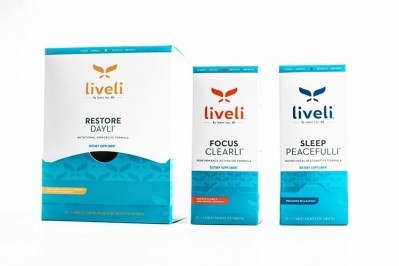CSPI warns consumers, asks for FDA action on adulterated ginkgo products

In a communication that relies in part on information drawn from a publication by the Botanical Adulteration Prevention Program, CSPI said that many ginkgo products have been shown to be adulterated, understrength or both.
In addition to warning consumers to avoid the pills, CSPI sent a letter to FDA detailing some of its concerns. While CSPI’s press release said it had urged FDA to “use its enforcement authority to seize adulterated pills in the marketplace,” the actual letter addressed to Steven Tave, director of FDA’s Office of Dietary Supplement Programs, merely calls on FDA “to act” in cases of adulteration.
Tests show many products adulterated
In making its case on adulteration, CSPI cites a bulletin on ginkgo adulteration that was published earlier this year by BAPP, which is a joint effort by the American Botanical Council, the American Herbal Pharmacopoeia and the National Center for Natural Products Research. That bulletin stated that as many as 70% of the gingko products in the marketplace might be adulterated, and in some cases that adulteration had become chemically sophisticated.
CSPI also cited results of a recent Consumer Labs study of the category that found six of 10 ginkgo products surveyed failed quality tests. Tests in other markets showed similar results, CSPI maintained. A 2010 test in Germany found only three of 10 products passed ‘authenticity tests’ and a more recent Canadian study found 10 of 14 products tested contained what was called ‘filler.’
Efficacy, safety assailed
CSPI also attacked the science backing the ingredient’s benefits. Ginkgo is one of the world’s most heavily studied phytomedicines, according to ABC founder and executive director Mark Blumenthal. But CSPI remained unconvinced, and hinged its argument that the botanical has no benefit on a 2012 meta analysis conducted by researchers in the UK.
And CSPI said ginkgo products were potentially unsafe. It said they could cause a risk of increased bleeding for consumers already prone to the problem. And the group said the safety profiles of the materials used to adulterate the products are unknown.
“Even if people choose to overlook the evidence that ginkgo does not supply the benefits that its manufacturers claim, all supplement consumers need to know that it’s anyone’s guess how much, if any, ginkgo is in a given pill,” said CSPI regulatory affairs director Laura MacCleery. “The FDA should take enforcement action to protect consumers from wasting their money on pills that don’t do what they claim to do, and that may not even be what they claim to be.”
Quality problems exist, but quality does, too
Both Blumenthal and Stefan Gafner, PhD, ABC’s chief science officer, said CSPI had gone too far in using the BAPP information to try to, in effect, take down a whole category.
“I think that CSPI has possibly exaggerated that information,” said Mark Blumenthal, founder and executive director of ABC. “It’s true, though, that it is a widely adulterated botanical.”
How do you test a cognitive support supplement for efficacy? Analytical labs weigh in
There has been an increased demand for testing cognitive support supplements, also known as nootropics, according to several analytical labs. How can companies substantiate claims around cognitive benefits? READ MORE
Getty Images / psphotograph“There is a problem with ginkgo quality,” Gafner said. “I don’t doubt that there were some products in the market that are of substandard quality.”
“But I think it’s true, too, that there are some products out there of very high quality and that was not mentioned in the CSPI letter,” he said.
Difficult field in which to prove efficacy
On the matter of efficacy, Gafner said part of ginkgo’s problem is the pitch on which it plays. The botanical has been researched for cognitive support and neuroprotective effects, which is a notoriously tricky area in which to prove a benefit. And that doesn’t apply only to dietary ingredients, he said.
“The fact of the matter is that with ginkgo, the indications are in the area of cognitive dysfunction. Efficacy in that area, even with conventional drugs, tends to be very hard to prove,” he said.
“There are some systematic reviews that do show benefit for gingko. It’s a matter of which reviews you choose to refer to,” Gafner said.
Safety warning disputed
Both Blumenthal and Gafner strongly disputed the tenor of the CSPI letter in raising a safety warning flag about ginkgo. While they were not defending the practice of adulteration per se, they said there was no evidence that it resulted in a category that could be broadly said to be unsafe.
“What we might often see on the adulteration front is a fortification with another material. Some suppliers might use flavonoid extracts from other botanicals,” Gafner said.
“But with these I really don’t believe there is a safety concern. I don’t think poison control centers have seen an increase of reports associated with ginkgo whatsoever,” he said.
Me-too conundrum
Blumenthal said the situation with ginkgo is illustrative of the problem of me-too products across the dietary supplement industry. Schwabe, a German phytomedicine company, pioneered ginkgo as a health ingredient and has done some of the best research on its effects. Its ingredient is regarded as being of unassailable quality.
“It’s a lamentable situation because it is really not fair to the company that created the category in the first place,” he said.

















